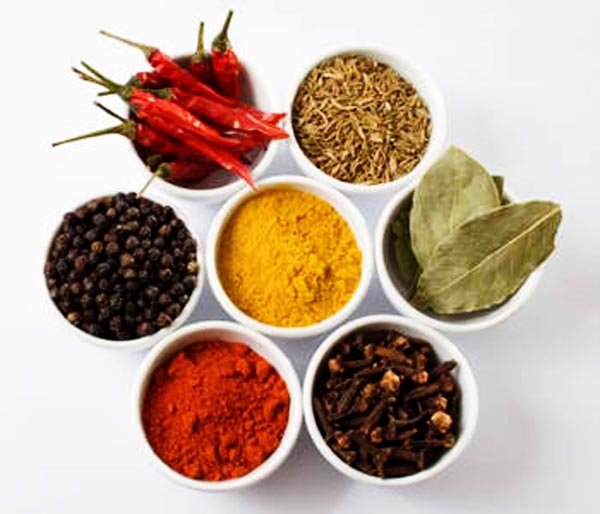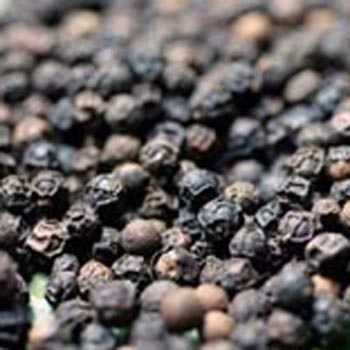
Did you know that natural herbs and spices used in cooking, carry a whole host of health benefits? All the more reason to use them in your everyday cooking and meals. We will take a look at just a few common ones and see how good they actually are for us.
Turmeric
Turmeric is quite a remarkable herb. It is a perennial plant of the ginger family and has a mustard yellow colour.
Turmeric has so many health and medicinal benefits, from being a powerful antioxidant and having anti-inflammatory qualities to aiding in cancer prevention.
So if you currently do not use this in your cooking, I hope you will definitely include it after this! The active medicinal ingredient in turmeric is called Curcumin which is responsible for the many anti-inflammatory, anti-oxidant, and anti-bacterial properties.
Some of its benefits include:
- Blood sugar: It can aid in stabilizing blood sugar levels.
- Cholesterol: It can aid in reducing your cholesterol levels.
- Arthritis: It can protect you against Arthritis, due to its anti-inflammatory and pain-relieving properties.
- Burns and cuts: It is a natural antiseptic agent and is used externally on cuts and burns in India.
- Alzheimer’s disease: Inflammation inside of the brain has been suspected to be one of the contributing factors in the development of Alzheimer’s disease. Studies have shown that Turmeric has anti-inflammatory and anti-oxidant activity. Therefore, regular daily consumption of Turmeric capsules may be an effective way to prevent the onset of Alzheimer’s. [1]
- Cancer: It can aid in the prevention of certain cancers such as breast cancer and prostate cancer.
- Asthma: Due to its anti-inflammatory properties, it can help reduce the inflammation associated with asthma. Add 1 teaspoon of turmeric powder to a glass of warm milk, and drink this mixture as an effective asthma home remedy. [1]
- Colds and Flu: Turmeric’s anti-bacterial, anti-viral, and anti-fungal agents can help our body fight against colds, cough and flu. [1]
- Diabetes: Recent studies have shown that the antioxidant agents in Turmeric help reduce insulin resistance, which may prevent the onset of Type-2 Diabetes. [1]
*People with gallstones or bile obstructions should consult a doctor first before taking turmeric.
Cooking hints:
- Add a tea spoon of turmeric to rice to make yellow rice.
- Add a tea spoon to chicken, steak or lamb chops marinade.
Cinnamon
Cinnamon is a small tree that is commonly found in South Asia and the Middle East region. The cinnamon that we typically purchase in our supermarkets is actually the bark of this tree, either sold as sticks or ground into a powder. The two most popular types of cinnamon are Ceylon and Cassia, each of which are derived from different trees. [1]
Cinnamon has an extremely high anti-oxidant content, and the oil of cinnamon has strong anti-bacterial and anti-fungal properties.
Some of the benefits of cinnamon taken from [www.organicauthority.com][2] include:
- 1/2 teaspoon of cinnamon per day can lower your bad cholesterol (or LDL).
- Cinnamon may help treat Type 2 Diabetes by lowering blood sugar levels and increasing the amount of insulin production in the body.
- Cinnamon has antifungal properties, and it’s been said that candida cannot live in a cinnamon environment.
- Cinnamon can reduce the proliferation of leukaemia and lymphoma cancer cells.
- Cinnamon has an anti-clotting effect on the blood.
- Honey and Cinnamon combined has been found to relieve arthritis pain.
- When added to food, cinnamon inhibits bacterial growth and food spoilage, making it a natural food preservative. Just smelling cinnamon boosts cognitive function and memory.
- Cinnamon fights the E. coli bacteria in unpasteurized juices.
- Cinnamon has been found to be an effective natural remedy for eliminating headaches and migraine relief.
- Cinnamon can also help stablize blood sugar (which is great for weight loss).
One of the best benefits of cinnamon, I think, is the last point, aiding in stabilizing blood sugar levels.
This really helps with losing weight, keeping cravings at bay, and keeping energy levels constant.
Now just a small point here, with all of these, I am not saying as soon as you are done reading this go out and stock up on all these herbs and start adding them to everything you eat in order for you to reap their benefits. No. Too much of a good thing is not always good.
Even cinnamon for example taken in high amounts can become toxic. So, rather just add a bit of them to some of your meals.
For example every morning add half a tea spoon of cinnamon to your morning oats (or cereal depending what you have) or add a dash to a cup of tea. It tastes great and you can still get some of the benefits!
Black Pepper
Black pepper comes from the pepper plant, a smooth woody vine that can grow up to 33 feet in hot and humid tropical climates. They begin to bear small white clustered flowers after 3 to 4 years and develop into berries known as peppercorns. Ground peppercorns produce the spice we call pepper. [3]
Some of the benefits of black pepper taken from [www.organicfacts.net][4] include:
- Good for stomach: Pepper increases the hydrochloric acid secretion in stomach and thus, helps digestion. Proper digestion is essential to avoid diarrhoea, constipation and colic. Pepper also helps to prevent formation of intestinal gas. A pepper-added diet promotes sweating and urination.
- Helps to lose weight: The outer layer of peppercorn assists in the breakdown of fat cells. Hence, peppery foods are a good way to help you shed weight.
- Good for skin: Pepper helps to cure Vitiligo, which is a skin disease that causes some areas of skin to lose its normal pigment and turn white. According to researchers in London, piperine contained in pepper can stimulate the skin to produce pigment.
- Relief for cough and cold: Pepper gives relief from sinusitis and nasal congestion.
- The antibacterial property of black pepper helps to fight against infections, insect bites etc. A pepper added diet helps to keep your arteries clean.
- Good antioxidant: An antioxidant, like pepper, can prevent or repair the damage caused by the free radicals and thus helps to prevent cancer, cardiovascular diseases and liver problems.
- Enhances bioavailability: Black pepper helps in transporting the benefits of other herbs to different parts of your body.
- It is a good treatment for respiratory conditions like asthma, whooping cough etc.
- It is used to treat conditions of tooth decay and toothache. In ancient times, pepper was also used to treat eye problems.
Cooking hints:
- Rather add freshly ground pepper at the end of the cooking process. Since it loses its flavour and aroma if cooked for too long, adding it near the end will help to preserve its flavour.
All three of these herbs contain some minerals and vitamins which are very good for us, as well as fibre which aids in digestion of the food we eat.
References
[1] www.HomeRemediesWeb.com
[2] www.organicauthority.com
[3] www.whfoods.com
[4] www.organicfacts.net
















